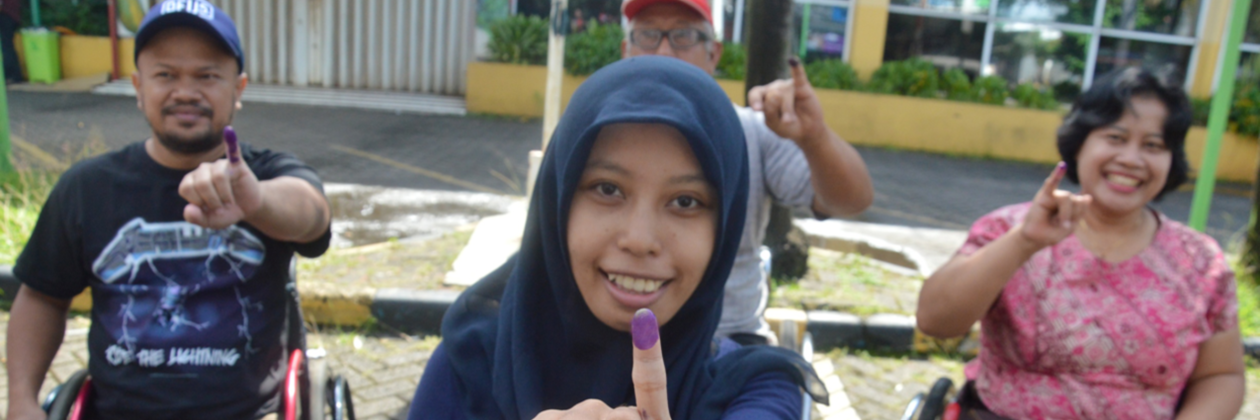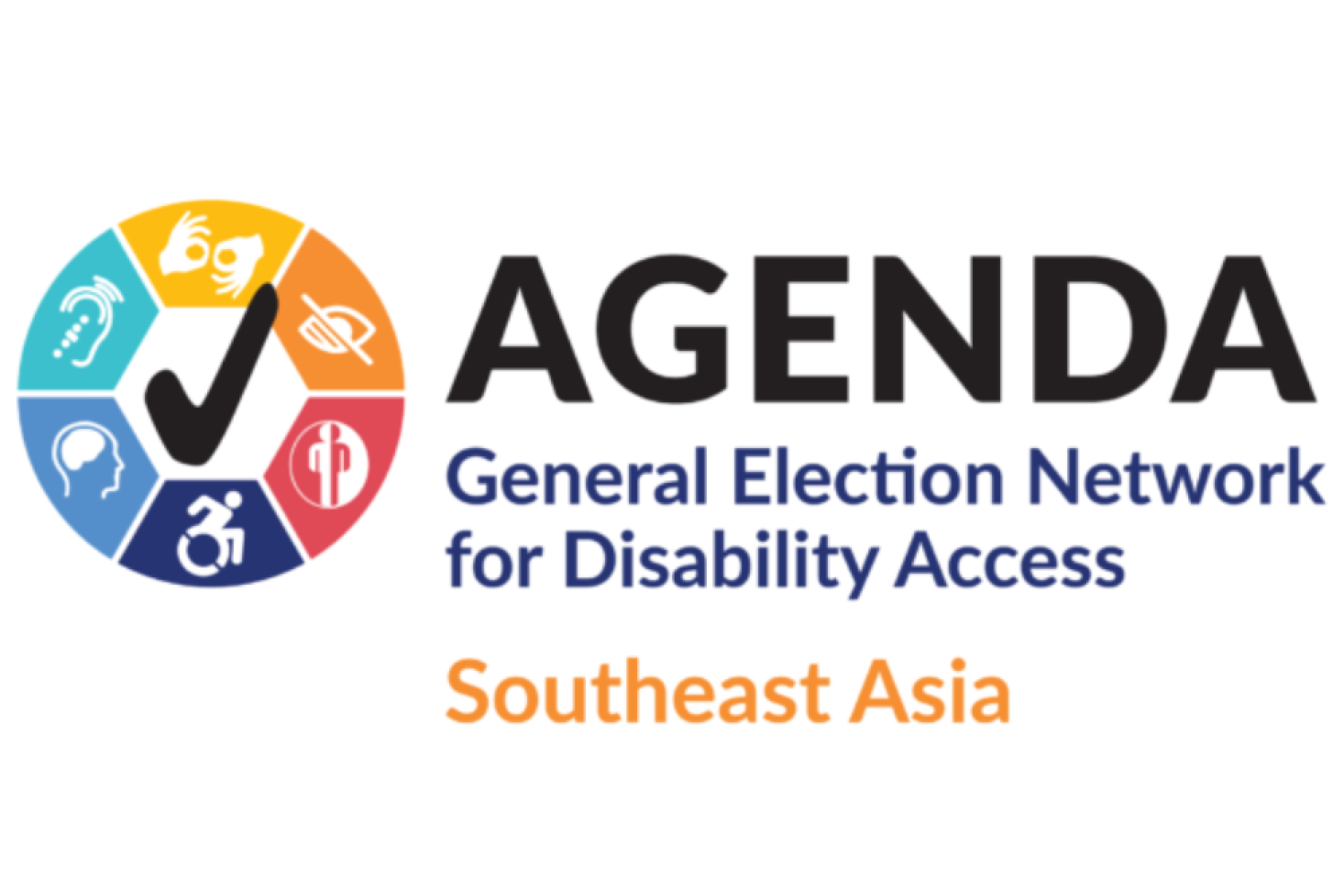
Partner Organization, General Election Network for Disability Access (AGENDA)
The General Election Network for Disability Access (AGENDA) is a creative partnership between the International Foundation for Electoral Systems (IFES), disabled persons organizations (DPOs), and election-focused civil society organizations (CSOs) in Indonesia, the Philippines, Malaysia, Vietnam, Laos, Cambodia, Thailand, and Myanmar, which is currently funded by the Australian Department of Foreign Affairs and Trade, and by the U.S. Agency for International Development during the first phase of the project. In this Q&A, IFES Indonesia Program Manager Erni Andriani, who has worked with AGENDA since it was founded in 2011, discusses how AGENDA cooperates with other stakeholders to ensure the right of persons with disabilities, AGENDA’s biggest achievements, and some of the biggest challenges to disability rights in Southeast Asia.
How do IFES, DPOs and CSOs in AGENDA collaborate to ensure the rights of persons with disabilities?
We learn from each other and understand that each organization in AGENDA has strengths and areas of expertise and by working together we can use this expertise to improve access for persons with disabilities. One excellent example of this collaborative work is AGENDA’s election observation missions, which assess the accessibility of an election. Election observers are put in teams of two, with one person with a disability and another from an election-focused CSO. The observers with disabilities gain knowledge on how to observe elections and the CSO observers become more aware about the challenges facing persons with disabilities.
What are some of the biggest challenges to disability rights in Southeast Asia?
The biggest challenge to disability rights in Southeast Asia is the lack of awareness of the rights of persons of disabilities. Sadly, some persons with disabilities are pessimistic, because there is such a lack of awareness. Another challenge is ensuring that governments allocate the necessary resources to ensure reasonable accommodations. In all aspects of life, many Southeast Asian countries do not accommodate the needs of persons with disabilities. But, this is because there is such a low level of awareness.
How has AGENDA worked with the Association of South East Asian Nations (ASEAN) to uphold the political rights of people with disabilities?
AGENDA established a relationship with ASEAN’s Intergovernmental Commission on Human Rights (AICHR) in 2011 when Indonesia was chairing ASEAN. Since then, we have been working together to advocate for the inclusion of provisions on the political rights of persons with disabilities into the ASEAN Human Rights Declaration. AGENDA’s recommendation to the AICHR were welcomed by the drafting committee and endorsed by 65 CSOs from the region.
What are some of AGENDA’s biggest achievements?
The establishment of AGENDA itself was a big achievement because it is the first regional network in Southeast Asia devoted to the political rights of persons with disabilities. AGENDA’s election monitoring checklist for disability access has been used in Indonesia, the Philippines, Cambodia and Malaysia and outside the region in the Dominican Republic. This checklist has been translated into over 10 languages around the world.
Before the establishment of AGENDA, only a small amount of data existed on accessibility and barriers to voting. To address this, AGENDA partners conducted studies on political participation in 2013 in Cambodia, Indonesia, Laos, the Philippines, and Vietnam. A second round of research in 2015 covered awareness of political rights (Vietnam), voter registration (Cambodia), political participation (Indonesia), and best practices and challenges for election management bodies (the Philippines). AGENDA has published the first Media Guidelines for Reporting on Accessible Elections. AGENDA also deployed the tool throughout Indonesia and regionally, and offered training to 45 journalists in Indonesia.
Finally, AGENDA achieved a remarkable breakthrough in the form of an invitation from the AICHR to cooperate on the development of the AICHR Regional Action Plan on Disability Rights. This is the culmination of four years of strategic engagement with the AICHR. AGENDA organized a meeting among DPOs from 10 ASEAN countries in Bangkok to interface with the AICHR and identify priority issues for the ASEAN Vision 2025 and draft AICHR Regional Action Plan. The meeting was held back-to-back with the AICHR Regional Dialogue in December 2015, which was the first AICHR meeting to focus exclusively on disability rights in the region.












